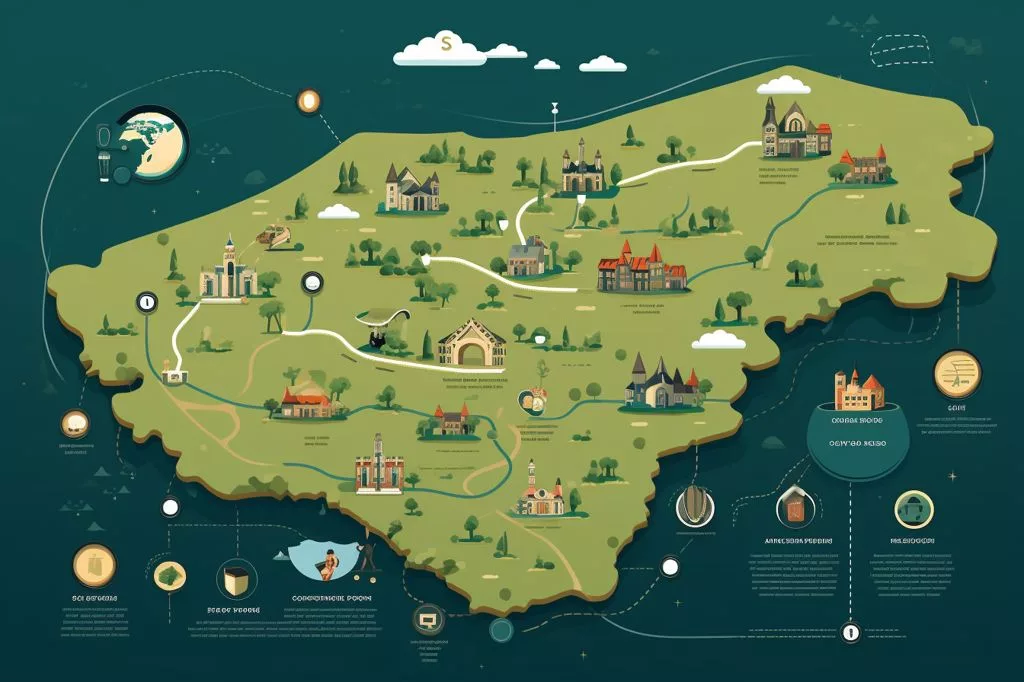South Africa’s Digital Census 2022 is the country’s fourth census since 1994 and the first fully digitized one. Using innovative techniques such as computer-assisted telephonic interviews and online self-enumeration, Census 2022 helps the government understand its people’s growth and well-being. The data gathered serves as the foundation for government planning, budgeting, and policymaking and emphasizes the importance of fulfilling the National Development Plan and the United Nations Sustainable Development Goals. The census’s success is credited to the involvement of South Africans across diverse enumeration channels, and it offers invaluable resources to aid South Africa in tackling remaining challenges.
What is South Africa’s Digital Census 2022?
South Africa’s Digital Census 2022 is the country’s fourth census since the dawn of democracy in 1994. As the first fully digitized census, it helps the government understand the growth and well-being of its people. With data gathered using innovative techniques such as computer-assisted telephonic interviews and online self-enumeration, Census 2022 serves as the foundation for government planning, budgeting, and policymaking. Census 2022 data emphasizes the importance of fulfilling the objectives of the National Development Plan and the United Nations Sustainable Development Goals.
The Journey to Census 2022
President Cyril Ramaphosa recently presided over the launch and delivery of South Africa’s Census 2022 at the Union Buildings in Tshwane. As the country’s fourth census since the dawn of democracy in 1994, Census 2022 significantly enhances South Africa’s understanding of its growth and the well-being of its people. In this article, we explore the effects of the digital census on government policy, societal advancements, and future plans.
The census undertaking started in 2018, with enumerators from Statistics South Africa (Stats SA) diligently collecting information. The unexpected emergence of the COVID-19 pandemic required Stats SA to quickly adapt and devise innovative data-gathering techniques, such as computer-assisted telephonic interviews and online self-enumeration. Consequently, South Africa’s inaugural digital census was entirely digitized, occurring just four months following the initial planned date of October 2021.
This intricate undertaking required years of groundwork and strategizing. Enumerators recorded data on individuals in households, hospitals, prisons, institutions, and those who were homeless or in transit at the nation’s borders. Stats SA’s focus on credibility, integrity, and compliance with international best practices ensures South Africa’s trust in the released data.
Census Data: The Backbone of Government Decision-Making
Census data serves as the foundation for government planning, budgeting, and policymaking. A competent, ethical, and development-oriented state depends on evidence-based policymaking. Inaccurate data could lead to ineffective resource allocation, underestimation of citizens’ requirements, inadequate program planning, and financial mismanagement. Census 2022 offers the essential data for the government’s focused, evidence-driven plan of action.
Significant progress outlined in the Statistician-General’s report includes:
- A substantial reduction in the number of individuals over 20 with no education.
- More than twice the number of individuals with grade 12 since 1996.
- A considerable percentage of children now attending early childhood development (ECD) centers, with ongoing initiatives to ensure access for all eligible children.
- Enhanced housing conditions, with nearly 90% of South Africans currently residing in formal housing.
- Almost universal access to the electricity supply, despite persistent load shedding issues.
Census 2022 data emphasizes the importance of fulfilling the objectives of the National Development Plan and the United Nations Sustainable Development Goals. The census not only exhibits progress but also uncovers the remaining challenges. This invaluable resource will aid South Africa in tackling these issues.
The Successes and Future of Census 2022
The triumph of Census 2022 is credited to the involvement of South Africans across diverse enumeration channels. The dedication of enumerators, the Statistics Council’s quality statement on the results, and the efforts of Statistician-General Risenga Maluleke and Stats SA teams all contribute to the census’s reliability.
In his concluding remarks, President Ramaphosa urges government departments, policymakers, researchers, civil society organizations, and international organizations to utilize this information extensively to enhance people’s lives. With the data provided by Census 2022, South Africa can ensure that no one is left behind as it continues to build and develop the nation.
1. What is South Africa’s Digital Census 2022?
South Africa’s Digital Census 2022 is the country’s fourth census since the dawn of democracy in 1994 and the first fully digitized one.
2. What innovative techniques were used in the census?
Innovative techniques such as computer-assisted telephonic interviews and online self-enumeration were used to gather data for Census 2022.
3. What is the purpose of Census 2022 data?
The data gathered serves as the foundation for government planning, budgeting, and policymaking, emphasizing the importance of fulfilling the objectives of the National Development Plan and the United Nations Sustainable Development Goals.
4. When did the census undertaking start?
The census undertaking started in 2018, with enumerators from Statistics South Africa (Stats SA) diligently collecting information.
5. How was the census impacted by the COVID-19 pandemic?
The unexpected emergence of the COVID-19 pandemic required Stats SA to quickly adapt and devise innovative data-gathering techniques, such as computer-assisted telephonic interviews and online self-enumeration. Consequently, South Africa’s inaugural digital census was entirely digitized, occurring just four months following the initial planned date of October 2021.
6. Why is census data important for government decision-making?
Census data serves as the foundation for government planning, budgeting, and policymaking. A competent, ethical, and development-oriented state depends on evidence-based policymaking.
7. What are some of the significant progress outlined in the Statistician-General’s report?
Some of the significant progress outlined in the Statistician-General’s report includes a substantial reduction in the number of individuals over 20 with no education, more than twice the number of individuals with grade 12 since 1996, enhanced housing conditions, and almost universal access to the electricity supply.
8. What is the importance of Census 2022 data for South Africa’s future?
Census 2022 data emphasizes the importance of fulfilling the objectives of the National Development Plan and the United Nations Sustainable Development Goals. The census not only exhibits progress but also uncovers the remaining challenges, and this invaluable resource will aid South Africa in tackling these issues.








